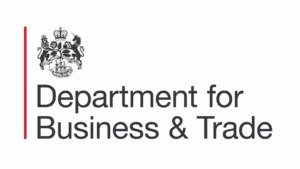
Diversifying to secure your business
In a tough economic climate, businesses must adapt and evolve to ensure their survival. One approach to securing your business’ future is by introducing new services. Diversifying your services or products can not only help you weather challenging times, but also open up new opportunities for revenue while helping you retain existing customers. Here, we look at some of the benefits of diversification to provide you with some ideas for how you might start thinking about developing new services in your business.
–

–
What is diversification?
Diversification is a strategy that involves expanding the range of products or services your business offers, reducing your reliance on a single source of revenue. It can seem counter-intuitive – after all, you would be investing more money during a risky period – but this actually helps mitigate the risks associated with economic downturns or other challenges. Example of diversification include:
- Expanding your range of products or services: This involves adding complementary products or services to your existing offer. For example, a coffee shop might introduce a line of cakes, or offer external catering services to diversify its income streams.
- Entering new markets: Expanding geographically can help your business tap into new customer bases. This might be achieved through opening new physical locations or by moving into selling your products or services online.
- Vertical integration: A different approach to expanding your range of services – it gives you more control over your supply chain by expanding into related industries. An example is a car manufacturer producing its own parts or launching a car-sharing service.
What are the benefits?
- Mitigates against risk: By diversifying, you reduce your business’ vulnerability to economic downturns in a single industry or product category. This reduces your overall risk exposure.
- Increases income: Introducing new services can create additional income streams, increasing your profitability. These streams can prove especially valuable during economic downturns when demand for your core products or services may decrease.
- Supports customer loyalty and retention: Offering more services, from a trusted source, can boost customer loyalty. Satisfied customers or clients are more likely to stay with a business that meets multiple needs, and the chance of them recommending your business to others also increases.
- Future-proofing: Diversification can help your business stay ahead of the game. By introducing new services that competitors aren’t offering, or entering new markets where there is little competition in your area, you can carve out a niche for yourself.
What do I need to think about?
- Market research: Identify gaps in your market, understand customer needs, and assess the potential demand for new services. This data will help you make informed decisions.
- Make a plan: Develop a clear and comprehensive business plan that outlines your objectives, target market, budget, and timeline. Ensure that your new services align with your brand identity – they should feel ‘of a piece’ with your existing offer.
- Marketing and promotion: Create a marketing plan to introduce your new services to your existing and potential customers. This is also an opportunity to re-introduce your core services to potential customers and new audiences that may not be aware of them.
- Measure and evolve: Monitor the performance of your new services, gather feedback from customers, and be ready to make the necessary changes to improve them.
In difficult economic times, diversifying your business’s service offerings can provide stability and growth opportunities. But remember that diversification needs thorough research, planning, and effective marketing. With a well-executed diversification strategy, your business can not only survive challenging times, but also thrive and prosper.
Articles
Fully Funded Training for Tourism and Hospitality Businesses - Level 2 Food Hygiene and Safety for Catering
The York and North Yorkshire Growth Hub are pleased to be partnering with North Yorkshire Council and the City of York Council on an initiative to support hospitality businesses from across the area to benefit from fully funded Food Safety and Hygiene Level 2 training and certification courses
Networking events: 10 tips for success
Not all networking events are created equal, so researching the different types might be a good starting point.
Industrial Strategy to provide over £150m to reinforce UK as services superpower
The UK’s modern Industrial Strategy will invest over £150 million in five transformative AI and technology programmes to help UK Professional and Business Services (PBS) sectors such as legal, management consulting and accountancy soar.
Events
03rd July 202510:00 am - 11:30 amFREE
Webinar: Vibrant and Sustainable High Streets Fund – Using Data to Support your Application
This session is designed to offer an oversight into the value of data and how it can be used to bring success to your project. This can be through helping to communicate the need for your project, understanding the outputs and outcomes of your proposals and ensuring you are on track to achieve these outputs and outcomes throughout the course of the project.
10th July 202510:00 am - 1:00 pmFREE
Northallerton Business Support Drop-In Morning
Free workshop included: Understanding Profitability, 10am – 11pm This Northallerton business support drop-in service can help answer your questions and direct you to relevant resources and programmes.
16th July 202510:00 am - 1:00 pmFREE
Harrogate Business Support Drop-In Morning
Free workshop included: Understanding Profitability. This Harrogate business support drop-in service can help answer your questions and direct you to relevant resources and programmes.
Resources
Vibrant and Sustainable High Street Fund Phase 2 - Webinar Series
This webinar series is designed to provide practical guidance and in-depth support with your application. Applications for Phase Two of the Vibrant and Sustainable High Streets Fund are now open, and will close at 5pm on the 31st July.
Featured Webinar Playlist: Wellbeing
Learn how to build resilience and communication, create a positive work environment, and support the mental health of both your team and yourself with our free wellbeing webinars playlist.
Webinar Recording: Why does Intellectual Property matter to your business?
This webinar will equip you with the knowledge to leverage IP for competitive advantage, investor attraction, and long-term business growth, ultimately showing you how a strategic approach to IP can be the difference between success and missed opportunities.









